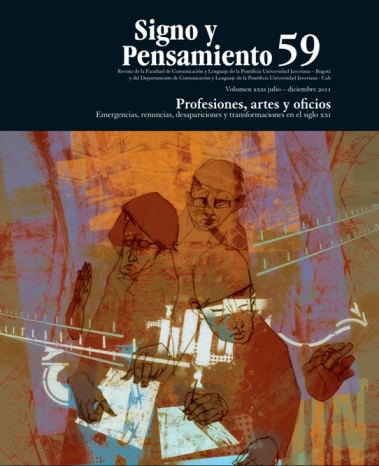Abstract
This article is a reflection that presents a chronology and analysis of the stages through which has passed through the teaching of language, from the Greeks to the advent of ICT, special emphasis on the need that society has of a suitable adaptation of language teachers of this century to the communicative reality imposed by the presence of technological elements, which have influenced contemporary man obstinately, establishing new ways of interacting in space and time.
Cabanillas, C. (2003), “La educación en Grecia” [en línea], disponible en: http://www.santiagoapostol.net/latin/educacion_grecia.html, recuperado: 18 de febrero de 2011.
Cruz P., M. (2007), “La world wide web en la clase de E/LE” [en línea], disponible en http://www. ucm.es/info/especulo/numero5/m_cruz.htm.
Cuba L., J. P. (2010). Expresión oral en el marco de la Educación Básica Venezolana. Un enfoque filosófico [tesis doctoral], Maracaibo, Urbe, Doctorado en Ciencias de la Educación.
Davis, F. (1998), La comunicación no verbal, Madrid, Alianza Editorial.
Franta, H. (2001). Comunicación Interpersonal, México, Limunsa. Herrera, D. (2001), Conflicto en la escuela: un camino de aprendizaje para la convivencia, Medellín, Instituto Popular de Capacitación (IPC) de la Corporación de Promoción Popular.
Key, E. (1900), El siglo de los niños, Caracas, Publicaciones del Ministerio del Poder Popular para la Educación.
Lomas, C. (2008), entrevistado por Rodríguez, L. H. y Sánchez Lozano, C., “Es tarea del docente de lengua y literatura mejorar las competencias comunicativas del alumnado” [en línea], disponible en http://www.cerlalc. org/Escuela/datos/entrevista.doc, recuperado: 18 de febrero de 2011.
Mizzau, M. (2001), Las competencias comunicativas en una prospectiva interpersonal, Madrid, Morata.
Rojas Espinosa, M. J. (2010), Usos y apropiaciones de las tecnologías de la información y comunicación en la formación del comunicador social, caso: Universidad Veracruzana [en línea], disponible en http://www.eumed.net/ libros/2010a/634/.
This journal is registered under a Creative Commons Attribution 4.0 International Public License. Thus, this work may be reproduced, distributed, and publicly shared in digital format, as long as the names of the authors and Pontificia Universidad Javeriana are acknowledged. Others are allowed to quote, adapt, transform, auto-archive, republish, and create based on this material, for any purpose (even commercial ones), provided the authorship is duly acknowledged, a link to the original work is provided, and it is specified if changes have been made. Pontificia Universidad Javeriana does not hold the rights of published works and the authors are solely responsible for the contents of their works; they keep the moral, intellectual, privacy, and publicity rights.
Approving the intervention of the work (review, copy-editing, translation, layout) and the following outreach, are granted through an use license and not through an assignment of rights. This means the journal and Pontificia Universidad Javeriana cannot be held responsible for any ethical malpractice by the authors. As a consequence of the protection granted by the use license, the journal is not required to publish recantations or modify information already published, unless the errata stems from the editorial management process. Publishing contents in this journal does not generate royalties for contributors.


